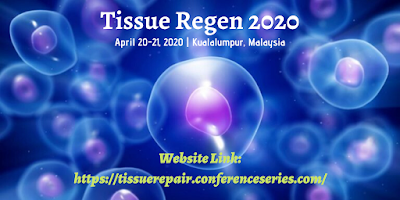What is Stem Cell?
The stem cells are
capable of differentiating into various types of cells. A stem cell's two
defining features are eternal self-renewal and the ability to distinguish into
a different type of adult cell. There are two main stem cell classes:
pluripotent, which can become any cell in the adult body, and multipotent,
which is restricted to becoming a more specific cell population. This addresses
cell origins, features, differentiation and therapeutic applications. For
tissue regeneration and reconstruction, stem cells have great potential, but
much also needs to be understood about their physiology, modulation and
protection before their maximum therapeutic potential can be achieved.
Why is there such an interest in stem cells?
Researchers and doctors hope stem cell studies can help to:
·
Increase understanding
of how diseases occur
·
Test new drugs for
safety and effectiveness
Researchers hope that one day the stem cells will be
effective in treating many medical conditions and diseases. But unproven stem
cell treatments can be dangerous so if you are considering any procedure, get
all the facts.
Everything from cure-alls to miracle cures was called stem
cells. I trust the hype not. Many unscrupulous providers offer both unapproved
and unproven stem cell products. But beware of potentially hazardous procedures
and check what is actually offered before undertaking any medication.
The facts: Stem
cell therapies can provide the potential for curing diseases or
disorders for which there are few treatments. Also called stem cells
"master cells" of the body are the cells that grow into blood, brain,
bones and all the organs of the body. These have the ability to repair, kill,
replace, and rebuild cells, and may be used to treat many diseases and medical conditions.
And the U.S. Food and Drug Administration is worried about
the susceptibility of certain patients seeking therapies and solutions to
illicit and potentially harmful stem-cell treatments. And the FDA is increasing
its monitoring and compliance to protect people from dishonest and unscrupulous
actions stem cell clinics, while continuing to encourage innovation so that the
medical industry can properly harness the potential of stem cell products.
Benefits of Stem Cell Therapy:
·
Avoid surgery and its
many complications and risks
·
Minimal
post-procedural recovery time
·
No use of general
anesthesia
·
No risk of rejection
·
No communicable
disease transmission
Contact
us:
Clara William
Mail us at: tissuerepair@memeetings.com
For more
information, please click here: https://tissuerepair.conferenceseries.com/

